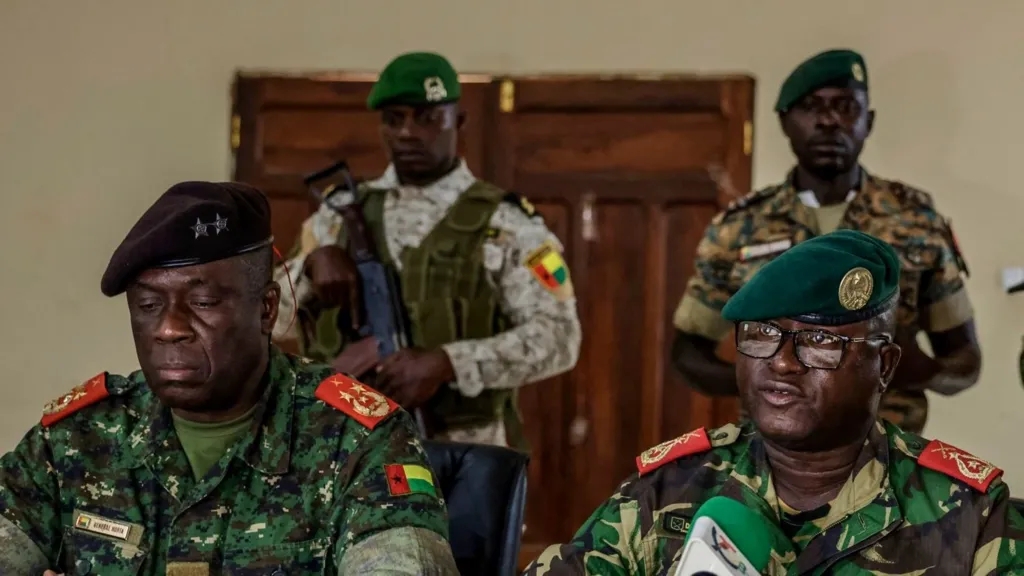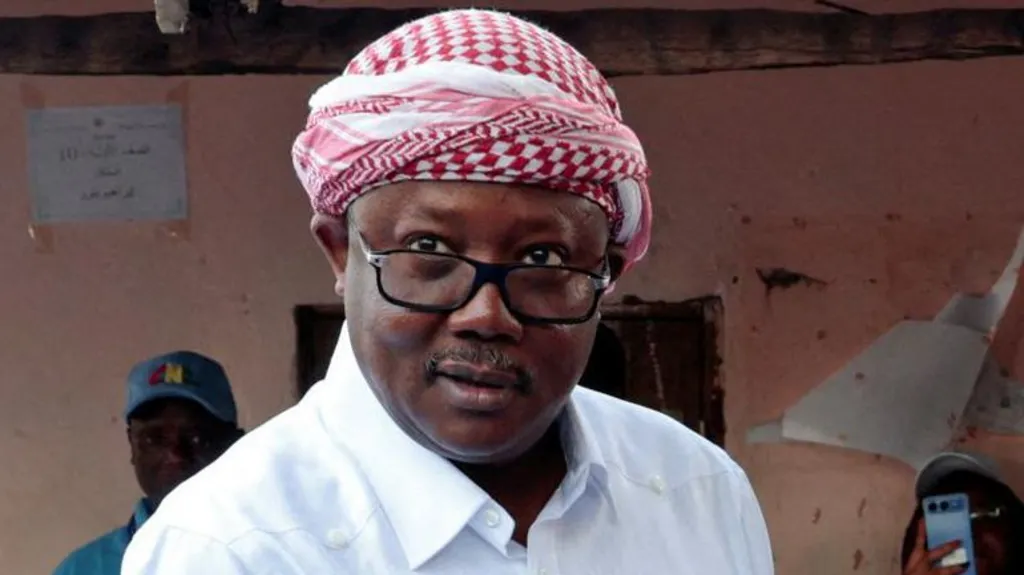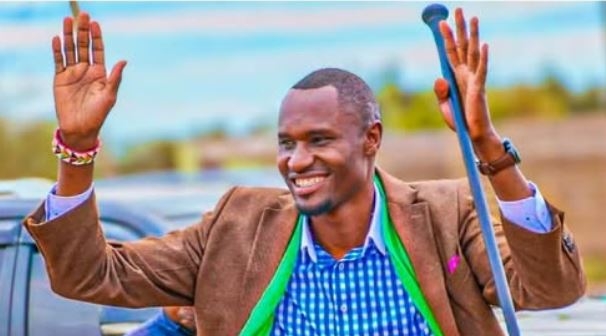
 Umaro Sissoco Embaló, a former army general, came to power in 2020 and was seeking a second term/BBC
Umaro Sissoco Embaló, a former army general, came to power in 2020 and was seeking a second term/BBC
Guinea-Bissau's deposed President Umaro Sissoco Embaló has arrived in neighbouring Senegal following his release by the military forces who toppled his government this week, Senegal's authorities have announced.
It follows negotiations by the regional West African bloc Ecowas to secure his transfer amid rising tensions in Guinea-Bissau.
Senegal's foreign ministry said in a statement that Embaló had landed in the country "safe and sound" on a chartered military flight late on Thursday.
The military in Guinea-Bissau has already sworn in a new transitional leader, Gen Horta N'Tam, who will rule the coup-prone country for a year.
Wednesday's coup came a day before authorities were due to announce the provisional results of a presidential and parliamentary election.
The military has suspended the electoral process and blocked the release of the results.
It said it was acting to thwart a plot by unnamed politicians who had "the support of a well-known drug baron" to destabilise the country, and imposed a night-time curfew.
Sandwiched between Senegal and Guinea, the coup-prone country is known as a drug-trafficking hub where the military has been influential since it gained independence from Portugal in 1974.
A mother of three told the BBC it was not the first military takeover she had lived through, nonetheless it had came as a surprise as people were expecting to hear about the outcome of the election, which had an estimated voter turnout of more than 65%.
"We heard gunfire. We ran away. We tried to pack our bags to go home," she said.
Another resident of the capital, Bissau, said he was unhappy about the situation.
"This doesn't help anyone. Because it puts the country into chaos," Mohamed Sylla told the BBC.
But reactions have been mixed, with some residents praising the army and hoping for an orderly transition.
"I am not against the military regime as long as they improve the living conditions in the country," Suncar Gassama told the BBC.
"Guinea-Bissau is a very rich country where all the conditions exist for a good life. I cannot understand why Guineans always have violence in their minds and are shooting everywhere. People must fight for the establishment of democracy."
Both Embaló and his closest rival Fernando Dias had claimed victory in Sunday's presidential poll.
Dias was supported by former Prime Minister Domingos Pereira, whose PAIGC party, the liberation movement that ended Portuguese colonial rule, had been barred from fielding a candidate.
Government sources earlier told the BBC that Dias, Pereira and Interior Minister Botché Candé had also been detained.
The military junta has banned public protests and "all disturbing actions of peace and stability in the country".
Tension remained high in Bissau on Thursday, with most shops and markets closed as soldiers patrolled the streets, news agency AFP reported.
Earlier that day, Gen N'Tam, Guinea-Bissau army's chief of staff, was named the country's new leader for a period of one year.
He said in a speech that the military had acted "to block operations that aimed to threaten our democracy".
Shortly after the swearing-in, the military reopened land, air and sea borders that were shut when it announced the coup.
Some local civil society groups have accused Embaló of masterminding a "simulated coup" against himself with the help of the military, saying it was a ruse to block election results from coming out in case he lost.
Dias made similar claims, saying it was an "organised coup". He told AFP that he considered himself the president-elect of Guinea-Bissau and believed he won roughly 52% of the vote.
Embaló has not responded to the allegations.
The 53-year-old leader has said he has survived multiple coup attempts during his time in office. However, his critics have previously accused him of fabricating crises in order to crack down on dissent.
He dissolved parliament after one such coup attempt in December 2023 and the country has not had a sitting legislature since then.
Persistent political infighting had left Embaló's administration increasingly exposed, explains Beverly Ochieng, West Africa analyst at the intelligence firm Control Risks.
"Over the course of Embaló's presidency, the legislature, judiciary and several state institutions have either been rendered non-operational or are functioning well below capacity," she told the BBC.
Political analyst Ryan Cummings said the president's previous actions had fuelled suspicions that the coup attempt was orchestrated to pave the way for his return to power under military oversight.
However, he told the BBC it was also "highly plausible" that the armed forces had acted independently to prevent a deeper political stalemate.
It was Sierra Leonean President Julius Maada Bio, the current Ecowas chair, who had contacted the Guinea-Bissau military on Wednesday to secure assurance for Embaló's protection, according to Sierra Leone's Foreign Minister Timothy Musa Kabba.
When asked about Embaló physical health on the BBC's Newsday programme on Friday, the minister declined to comment but said the priority was ensuring his safe evacuation from Guinea-Bissau.
Ecowas leaders have suspended Guinea-Bissau from all decision-making bodies until constitutional order is restored. In a statement, the bloc ordered the military to return to the barracks, calling its actions a "grave violation of Guinea-Bissau's constitutional order".
The African Union has also condemned the coup.
UN Secretary-General Antonio Guterres said in a statement that he was "deeply concerned" about the situation in Guinea-Bissau, calling for an "immediate and unconditional restoration of constitutional order".
Guinea-Bissau has witnessed at least nine coups or attempted coups over the last five decades.
















